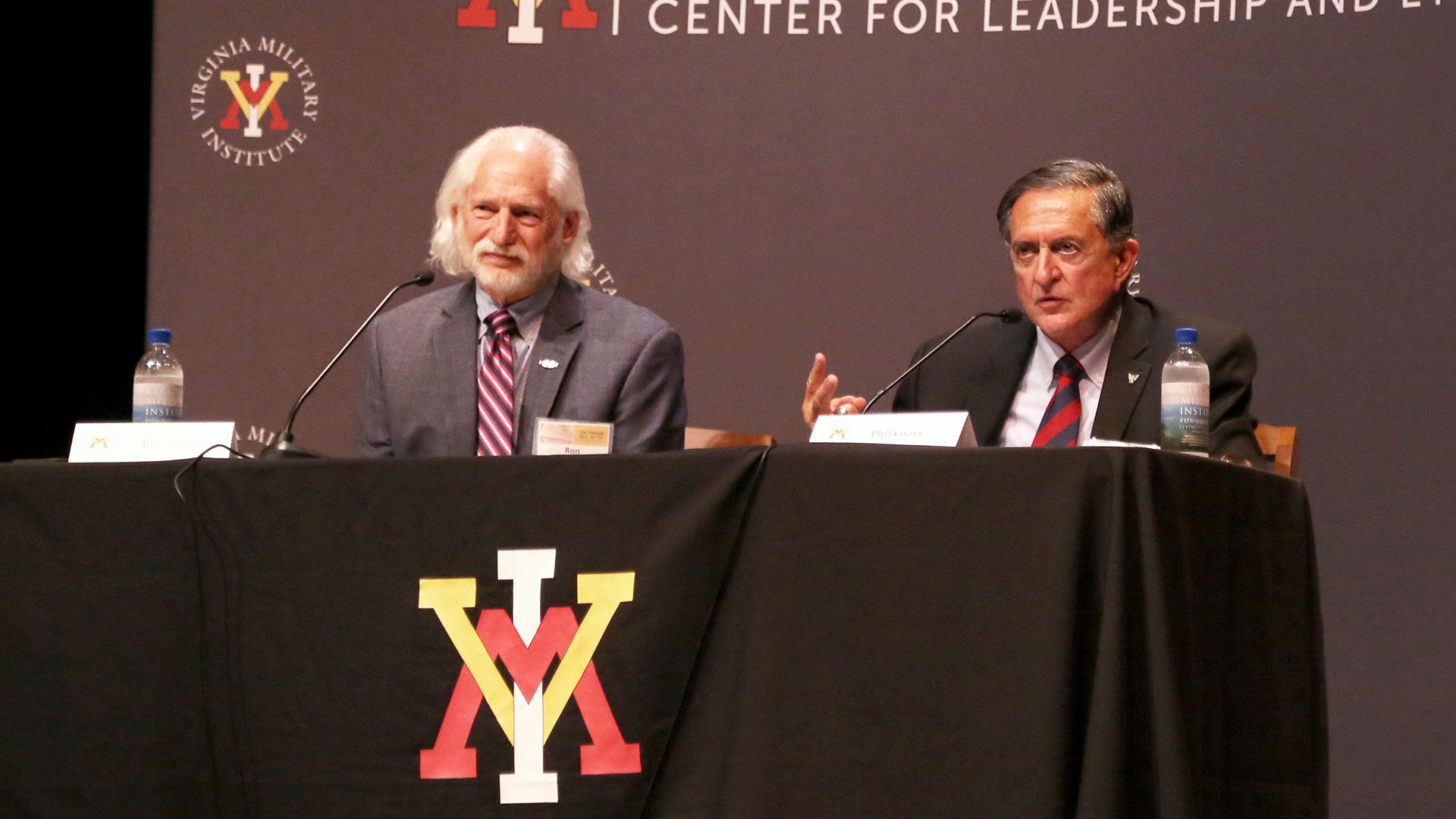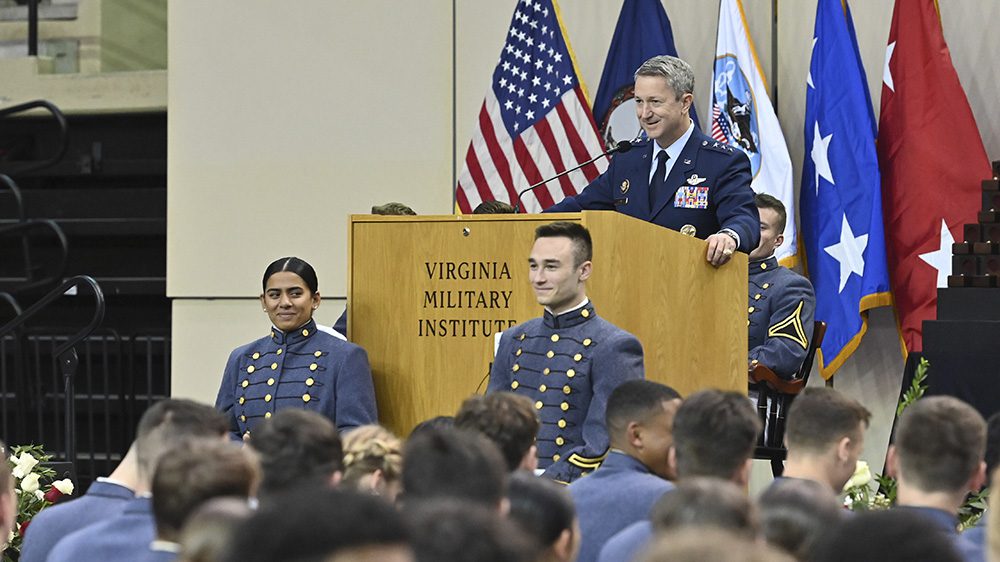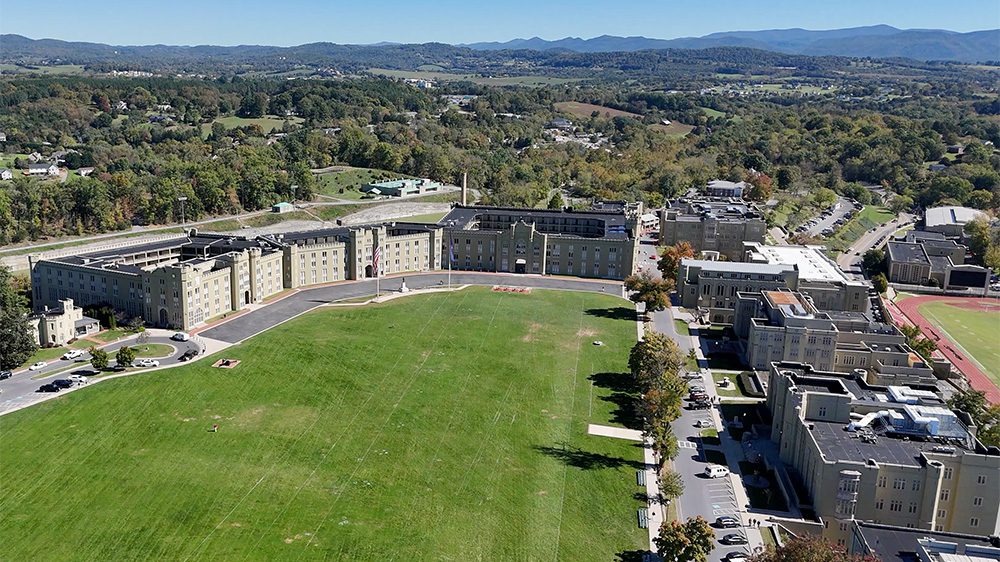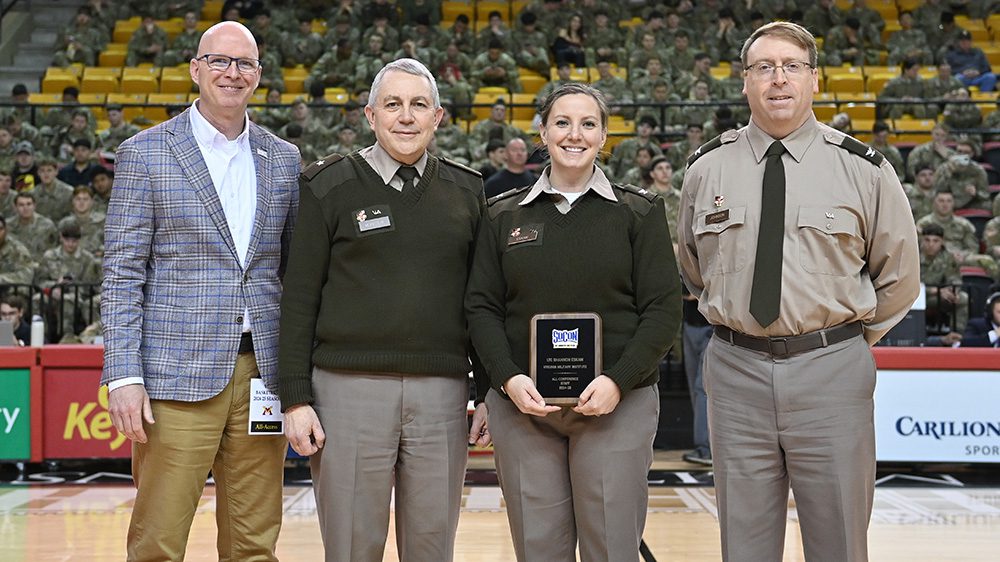VMI’s Center for Leadership and Ethics skillfully orchestrated a one-day symposium about the Vietnam War titled “The Vietnam War at 50: Critical Reappraisals” Sept. 24, 2018.
The symposium was inspired by the Ken Burns/Lynn Novik Public Broadcasting Service documentary on the Vietnam War, a war which shaped a generation and still resonates with many Americans today.
“Controversies over the proper strategy and tactics to pursue, the quality of leadership and discipline in fighting units, the media’s impact on popular support for the war and the mistreatment of American prisoners of war raged then and continue even now,” explained Col. David R. Gray, Ph.D., center director. He continued, “The Vietnam War remains the most controversial and consequential conflict in the post-World War II era. The war’s outcomes profoundly impacted not just American domestic politics, but also the existing international order … which fractured American consensus on political, social and military affairs, leading President Richard Nixon to vow for ‘no more Vietnams’ in the future.”
The event drew many VMI alumni, including 11 brother rats from the Class of 1967. One of their own, Phil Gioia ’67, was a speaker during the afternoon panel discussions.
The symposium began with opening keynote speaker and Vietnam veteran former U.S. Sen. Jim Webb. He referred to a map of Southeast Asia, calling it “the most dynamic region in the world at the end of World War II.” Webb noted that the region’s economic success today likely stems from America’s efforts fifty years ago. After Webb, participants gave their attention to four panel discussions: U.S. strategy, Vietnamese strategy for both the north and south, experiences leading tactical troops and the role of journalists and media in the Vietnam War. The well-rounded panels began in the morning with professors, who were able to present overviews based on years of research. The afternoon panels were presented by journalists and veterans who discussed Vietnam using their first-person experiences in the war.
After lunch, Gioia, along with Ron Milam, Ph.D., shared their combat experiences commanding and advising troops at the small unit tactical level, discussed their preparation for war and offered advice to cadets.
The day’s final panel was a spirited discussion about media coverage in Vietnam. In the realm of media and journalism, the war was notable in two main regards: Technology and freedom of the press. On the technology side, television brought the war into the majority of U.S. homes, Gray said. Presenters and seasoned correspondents Joe Galloway and Jim Sterba described the freedom given to reporters in Southeast Asia, differing from previous wars.
The symposium was capped off by the moving testimony of Dr. Hal Kushner, dinner keynote speaker. Kushner captivated his audience with his detailed description of the five-plus years he was held as a prisoner of war in Vietnam. He was captured after a helicopter crash. Soon after, he was offered a post working in a Vietnamese hospital. The catch was he would be required to denounce the U.S. and its efforts in Vietnam. Kushner refused, telling his captors he preferred death over betraying his country. His captor responded that, in light of the coming maltreatment Kushner would experience, death would be the easier choice. Captured Dec. 2, 1967, Kushner and his fellow prisoners were released March 16, 1973.
“With 50 years’ perspective, this symposium reflected on several … issues,” Gray said. “Our speakers and panelists did a great job covering these topics, helping us achieve our desired outcomes for our cadets and guests.”
Full video of all conference speakers and panels are available for viewing at the center’s YouTube channel.





